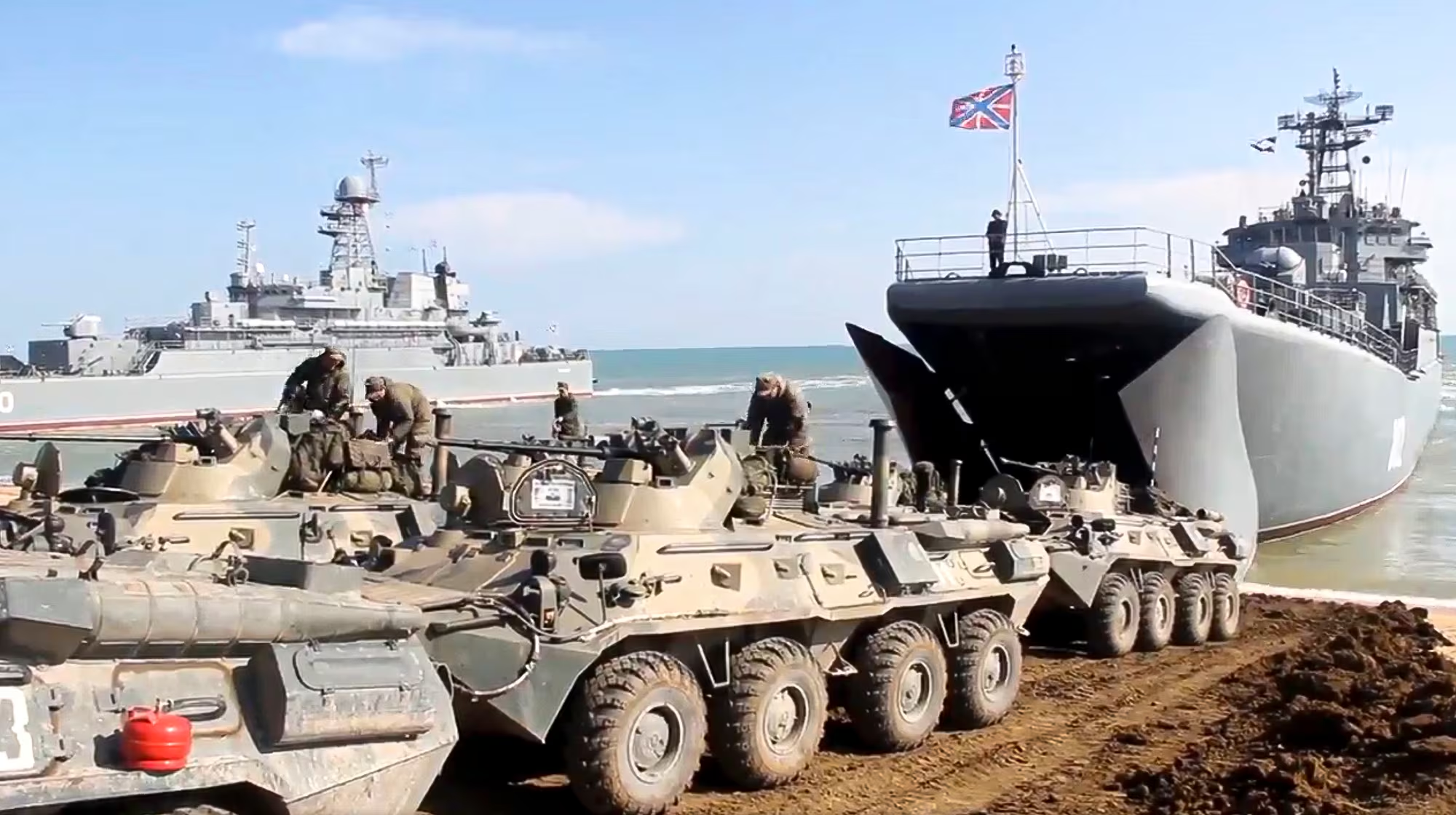U.S. Secretary of State Antony Blinken met face-to-face with his Russian counterpart on Thursday to demand Russia pull back troops from the border with Ukraine, as tensions and suspicions grow in a confrontation over Ukraine’s increasingly close ties with NATO and the West.
Russia on one side and Ukraine, the U.S. and its NATO allies on the other traded fresh accusations and threats. The West, fearing that Moscow could invade Ukraine, threatened the Kremlin with the toughest sanctions yet if it launches an attack. Russia, seeing new U.S. and European support for Ukraine’s military, sternly warned that any presence of NATO troops and weapons on Ukrainian soil represents a “red line.”
Fears that Russia would invade its neighbor or seek to undermine the government of Ukrainian President Volodymyr Zelenskyy have dominated Blinken’s travels this week to meet with European allies.
Blinken and Russian Foreign Minister Sergey Lavrov met Thursday on the sidelines of a ministerial meeting of the Organization for Security and Cooperation in Europe in Stockholm, Sweden.
“The United States and our allies and partners are deeply concerned by evidence that Russia has made plans for significant aggressive moves against Ukraine, including efforts to destabilize Ukraine from within and large-scale military operations,” Blinken told reporters.
During his meeting with Blinken, Lavrov charged that the West was “playing with fire” by denying Russia a say in any further NATO expansion into countries of the former Soviet Union. Zelenskyy has pushed for Ukraine to join the alliance, which holds out the promise of membership but hasn’t set a a timeline.
“I want to make it crystal clear: Turning our neighbors into a bridgehead for confrontation with Russia, the deployment of NATO forces in the regions strategically important for our security, is categorically unacceptable,” Lavrov said he told the OSCE meeting.
The United States and its European allies have struggled to warn Russia off any military action and reaffirm support for Ukraine without moving so forcefully as to give Russian President Vladimir Putin a pretext to invade.
American officials and their allies acknowledge the uncertainties, including whether Putin is prepared to invade Ukraine or is maneuvering to bring President Joe Biden into one-on-one talks on security concessions.
Putin said Wednesday that Moscow would seek Western guarantees precluding any further NATO expansion and deployment of its weapons near Russia’s borders. Lavrov followed up on Putin’s call for a new security arrangement, stating that reaching an agreement on a set of “long-term and legally binding security guarantees is imperative to prevent sliding into a confrontational scenario.”
Alexander Vershbow, a former U.S. ambassador to Russia and former deputy secretary general of NATO, said he sees little or no prospect of the U.S. or NATO providing Putin with such guarantees. “He’s simply not going to get” an agreement to rule out further NATO expansion, Vershbow told The Associated Press.
Vershbow also ruled out the U.S. or NATO agreeing to halt the kind of military assistance they have been providing to Ukraine since 2014, including arms, training and intelligence sharing.
RELATED

Russia and Ukraine have remained locked in a tense tug-of-war since Russia annexed Ukraine’s Crimean Peninsula in 2014 following the ouster of the country’s Kremlin-friendly president and threw its weight behind a separatist insurgency in eastern Ukraine, which has killed more than 14,000.
Vershbow said Russia would not have an easy time if it chose to invade Ukraine, whose military is better equipped and more capable than it was in 2014. “It would be very costly for the Russians in terms of casualties,” he said.
Ukraine and the U.S. estimate that Russia has at least 90,000 troops on its border with Ukraine, while Russia charged this week that Ukraine has amassed about 125,000 troops, or about half its military, near the rebel-controlled areas in the east.
Addressing the OSCE meeting, Blinken urged Russia “to respect Ukraine’s sovereignty and territorial integrity to de-escalate, reverse the recent troop buildup” and “return forces to normal peaceful positions.”
The Kremlin has voiced concern that Ukraine may use force to reclaim control of the rebel east. And adding to the tensions, the head of a Russian-allied, self-proclaimed separatist republic in the east appeared on Russian state television to say that he could turn to Moscow for military assistance if the region faced a Ukrainian attack.
Ukrainian officials have denied an intention to reclaim the rebel regions by force.
Blinken sought Thursday to pre-empt Russian claims that Ukraine was threatening Russian interests. “Ukraine is in no way posing a threat to Russia or seeking a confrontation that would justify a Russian military intervention,” the American secretary of state insisted.
Blinken also met separately with Ukrainian Foreign Minister Dmytro Kuleba. Kuleba tweeted afterward that Ukraine and the United States “are closely working together on developing a comprehensive deterrence package, including severe economic sanctions, to demotivate Russia from further aggressive moves.”
John Herbst, a former U.S. ambassador to Ukraine, said Thursday that Putin appeared to be “testing Ukraine. He’s testing the West.”
Herbst, in a discussion at the Atlantic Council think tank, argued the Biden administration’s response has been strong so far, leaving Putin “hoping now simply to get some sort of concession either from Ukraine or perhaps from the United States.”
“Putin is definitely as serious as he could be” in the standoff, countered Ukraine analyst Hanna Shelest.
